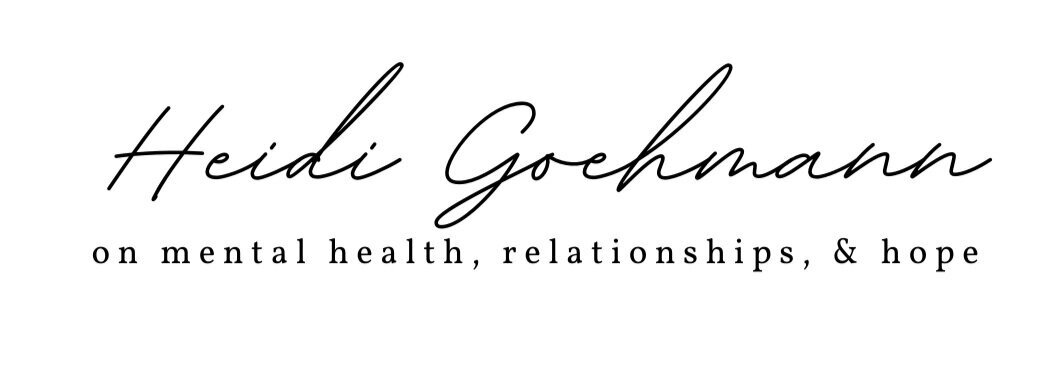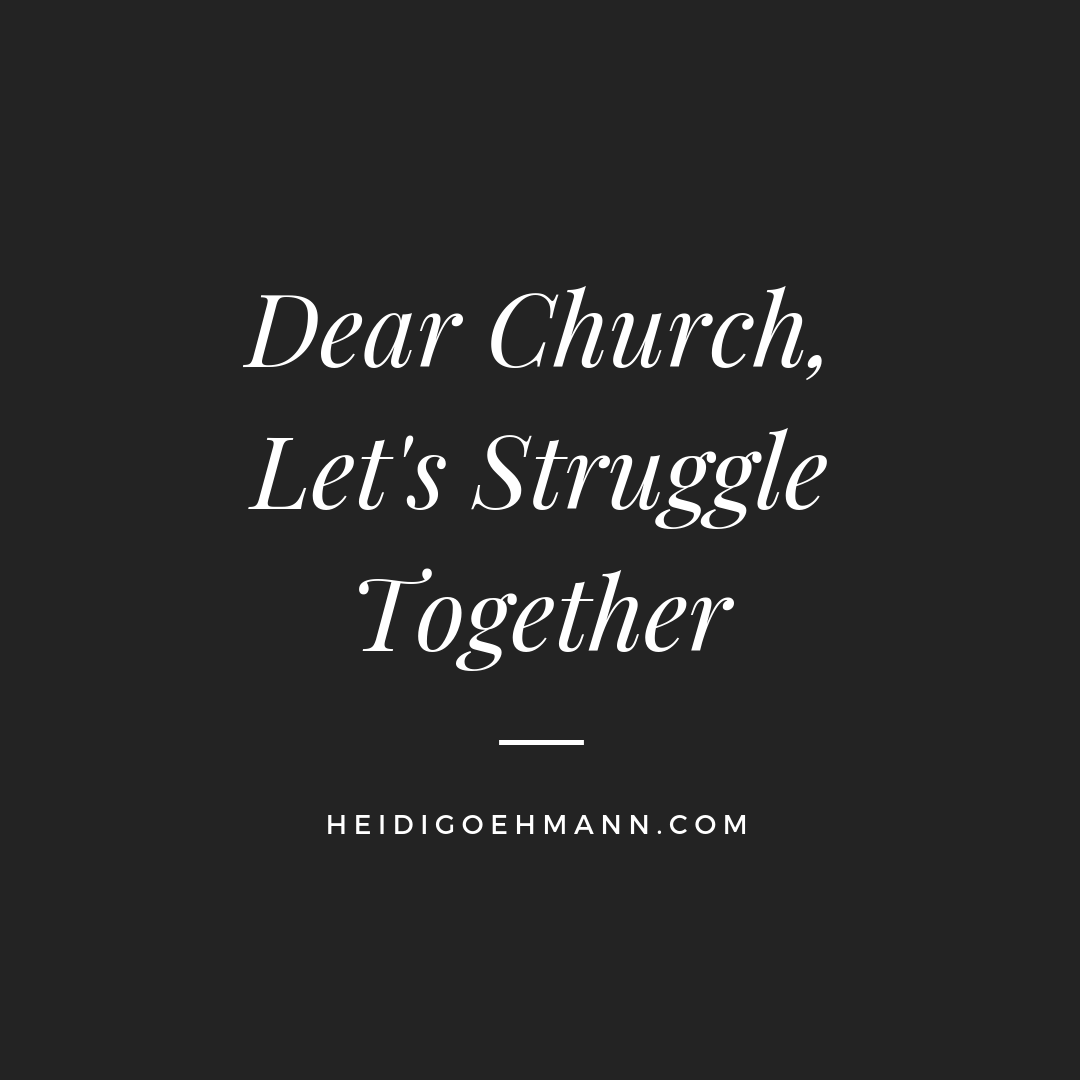Dear Church: Let's Struggle Together
Dear Church,
It’s high time we start struggling together.
The isolation is literally killing us.
In the US, according to the National Institute for Mental Health, suicide is among the four leading causes of death for all age groups, outside of those individuals 55 years and older. It is also the second leading cause of death for anyone from ages 10 to 34.
Suicide isn’t the only piece of the isolation puzzle.
How many people in our midst are dealing with mental health struggles like anxiety or depression on their own?
How many people are walking through cancer or divorce or sexual assault or parenting struggles on their own?
Then there’s the toll isolation takes on our physical health. Isolation and loneliness suppress the immune systems, contribute to terrible eating habits which connects the dots to heart disease and inflammation, cause us to be grouchier and angrier with those we love and live with, and increase the crime rates of our communities. All of these things lead to shorter life spans and more difficult roads to travel while we are here.
With the Church in existence on earth, with this community that God has created and put His Spirit in to knit and connect and develop, I don’t think there is any reason for people to struggle like this, this hard.
Will brokenness always exist? Yes. Will there always be suicide and depression and loss and heartbreak and loneliness and struggle? Yes.
But dear Church, isn’t it time it was a little bit better, even just a teensy bit better?
How do we make it just a little bit better, a tiny bit more connected, a tiny bit less isolated?
We can struggle together.
I was reminded of our need for one another, but also all that gets in the way of actually knowing one another, through an odd and relatively silly interaction this summer while camping with my family in rural Quebec:
We checked into our campsite, set up all our stuff, and started a fire. Soon, we decided to make the trek to the bathrooms, where we encountered a lovely gentleman speaking rapid French desperately trying to tell us something we had no hope of understanding. He was pointing to his arm and his neck and with great drama imparting valuable information about his plight to us. We were smiling and nodding like a family of bobbleheads. We smiled and nodded our goodbyes at some point, and went in to use the restroom. Within three minutes, all six of us had exited the restrooms, running and slapping our arms and necks like crazy people. We each had anywhere from 10-40 welts popping up all over our arms, legs, and any place where the skin was bare on our bodies. You see, it was black fly season in Quebec, something we had never heard of, and up until those moments, didn’t think impacted us as Nebraskans. We were ripe for the picking to those black flies, with very little covering and the subsequent welts to prove our ignorance. Our daughter, Jyeva, still has marks on the back of her neck, 3 months later!
I tell this story to intro two issues that impact our ability to struggle together. In subsequent articles, we’ll talk about how we might address each of those issues.
In Quebec, here was this French Canadian who only meant to shower us with warnings and kindness, but we had two problems:
Problem No. 1- A Language Barrier
We wanted to enter his struggle, whatever it was, but felt we had no way of doing so.
We weren’t speaking the same language. I think this happens in our church narthexes and family centers, in our schools, and in our communities all over the place. We all come from different backgrounds and live within different contexts, even when we’re neighbors. We need to ask ourselves, “How can we begin to understand the language of the person sitting next to us?” as well as, “How can we help them better understand our own?”
Problem No. 2 – What’s Mine is Mine, What’s Yours is Yours
Looking deeper at our camping experience, we also couldn’t quite connect how this French- Canadian man’s struggle impacted us immediately upon meeting him, so when it gets down to it … we didn’t work very hard to understand him. We essentially left him with this response plastered all over our smiling faces:
“You do you, man, you do you, and we’ll do us. Good luck with that.”
Had we entered in, had we worked a tiny bit harder to understand his language and his non-verbal signals, we would have saved ourselves a whole lot of pain. If we would have cared enough for him as a person to be known, to be connected with him in the first place, that would have gone a very long way in understanding him. Taking that time to understand him would have helped us avoid the whole painful situation for ourselves. We could have had a shared problem and maybe found a way to make it better … together.
We have to want to know one another in order to begin to genuinely include one another.
The Church = a community that wants to know Jesus;
a community where people are known by Jesus;
a community where people are known by one another
Without the desire to know one another, it’s just a fake copy of community.
Entering into one another’s struggle, standing with and beside, is the beginning of knowing, and knowing is what ends isolation.
Dear Church, we can do this. We can attempt to understand one another a little bit better, to know one another a little bit deeper. Find your safe people, of course. You don’t have to spend gobs of time with everyone, but let’s do this.
Dear Church, I invite you —
Do not struggle alone.
Do not let someone else struggle alone.
Let’s struggle together.
More on relationships on today’s podcast:
Up next — Look for resources on building genuine relationship on the Relationships tab at the top of the page.

